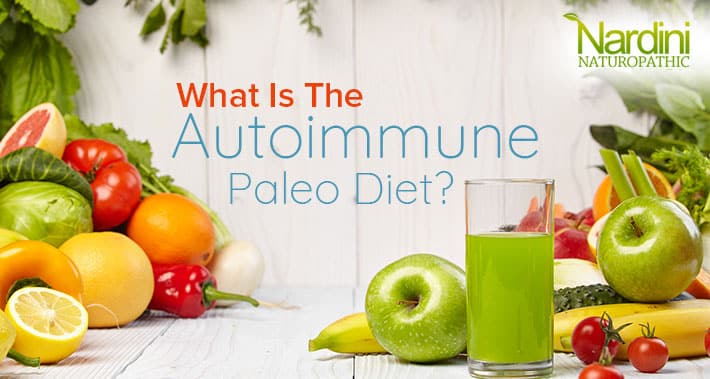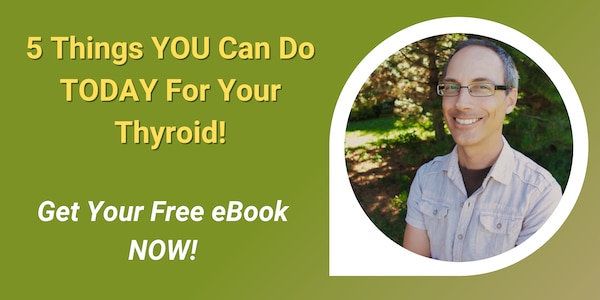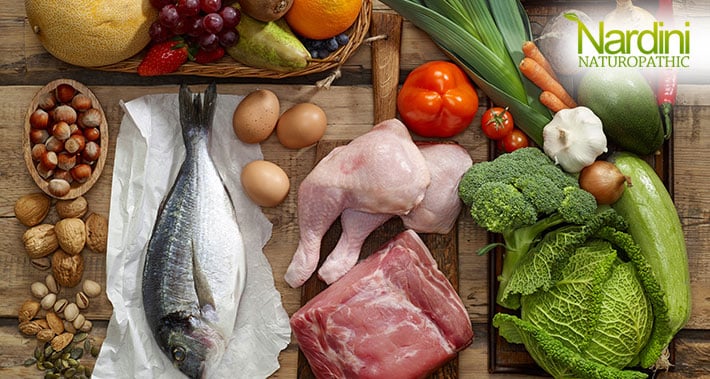As a naturopathic doctor in Toronto with a special interest in thyroid and endocrine health, I see quite a few patients with autoimmune conditions.
And while I’ve had success in treating these patients with a number of different modalities, one I’ve found to be particularly interesting is the autoimmune paleo diet.
What is the autoimmune paleo diet?
And how can it help you manage your autoimmune condition?
Keep reading to find out.
Where Did The Autoimmune Paleo Diet Come From?
The autoimmune paleo diet, also known as the autoimmune protocol diet, or AIP diet for short, was created (with inspiration from others) by Dr. Sarah Ballantyne, a medical biophysicist.
She has authored several books and maintains a blog over at her website, The Paleo Mom1.
Dr. Ballantyne created the diet as a response to the treatment of disease in the modern world, as well as how we eat in general.
And part of it has to do with the nature of an autoimmune disease in the first place.
What Is An Autoimmune Disease?
An autoimmune disease is a type of disease in which your immune system is confused and recognizes part of your own body as a foreign invader.
As a result, it starts to attack itself.
The attack can sometimes begin slowly, and at first you may not even notice a difference.
However, eventually you’ll come to notice symptoms.
And speaking of which, the symptoms are quite different depending on which autoimmune disorder you have.
There are currently over 100 identified autoimmune diseases according to the American Autoimmune Related Diseases Association2.
Some of the more well-known ones include:
• Lupus
• Narcolepsy
• Lyme disease
• Type 1 diabetes
• Some forms of arthritis
• Fibromyalgia
• Psoriasis
• Crohn’s disease
• Graves’ disease
• Hashimoto’s thyroiditis
The one thing these diseases all have in common is the fact that one’s own immune system is attacking a part of their body.
Common targets include the thyroid gland and endocrine system, which is one of the reasons I have such a special interest in those areas.
What Is The Paleo Diet?
The paleo diet, on the other hand, is a diet that has been popular for the last few years or so among the health and fitness community.
You may have seen it referred to as the caveman diet or stone age diet as well.
The general premise of the paleo diet is to eat foods that were available to people during the Paleolithic period in Earth’s history.
Anatomically modern humans began to show up during the paleolithic period, about 315,000 years ago.
So, we can consider the paleo diet to be the food eaten by these early people until the beginning of the Neolithic revolution, about 12,500 years ago, when agriculture changed our diets.
Had you been around during the paleolithic era, you wouldn’t have had access to certain types of foods.
And I don’t just mean hamburgers and French fries.
Dairy, grains, processed food like canola oil or refined sugars, legumes, starches, and alcohol would simply not have been around.
Go ahead, wander around a forest for as long as you like.
You’ll have a hard time finding most of these, and the ones you do find will be difficult to eat without significant alteration.
Meanwhile, other foods would have been plentiful at the time.
Fruits and vegetables, for starters – the stuff grows on trees, after all.
Lean meats would also be fairly simple (but not necessarily easy) to come by, as would seafood.
Nuts and seeds would be common too, as would herbs and most spices.
One of the best benefits of the paleo diet is the removal of processed foods.
While different diets may argue for or against the benefits of dairy, for example, it’s hard to argue that processed foods are essential.
The more whole foods you eat, the cleaner your diet is likely to be.
However, because dairy is the most significant source of calcium for most people, adherents to the paleo diet can end up with a deficiency in calcium.
So be careful to include other calcium rich foods in your paleo diet, like kale, sardines, or broccoli.
The Autoimmune Paleo Diet
So now we know what an autoimmune disease is, and we know what the paleo diet is.
How does the combination of the two work?
One of the core ideas behind the autoimmune paleo diet is to reduce inflammation in your gut.
This has a soothing effect on the rest of your body, which relaxes inflammation throughout, and has been shown to put certain autoimmune conditions into remission.
Notably, several things that are permitted in a normal paleo diet are not during the autoimmune paleo diet, including:
• Nuts and nut oils
• Seeds and spices derived from seeds, like cumin, coriander, mustard, nutmeg, etc.
• Dried fruit
• Chocolate (pure organic chocolate is permitted in most normal paleo diets)
• Eggs
• Coffee (because it comes from a bean)
• Nightshade vegetables, including bell peppers, potatoes, tomatoes, and eggplant
Add this list to the already limited paleo diet, and it seems like you’ve got a small plate to choose from.
But you might be surprised.
Here’s what you can have on the autoimmune paleo diet.
• Any vegetables, except nightshades
• Fruits
• Coconut and coconut-derived products
• Olive, coconut, or avocado oils
• Lard and bacon fat
• Cultured ghee (so long as it’s free of lactose and casein)
• Grass fed meats, including organ meats
• Poultry
• Seafood
• Bone broth
• Green tea
• Herbal teas not derived from seeds
• Fermented foods, like kombucha, coconut yogurt, kimchi, and sauerkraut
• Coconut, red wine, balsamic, or apple cider vinegars
• Honey or maple syrup as a sweetener
• Any herbs or spices not derived from seeds, like cinnamon, turmeric, ginger, parsley, rosemary, thyme, basil, oregano, mint, etc.
• Grass fed gelatin and arrowroot starch as binders.
The length of time during which you ought to stay on this diet, as well as the exact mix of different foods you ought to eat, will depend on your autoimmune condition.
Speak to your naturopathic doctor or nutritionist for more detailed instructions.
Problems With The Autoimmune Paleo Diet
The autoimmune paleo diet does, however, have some drawbacks for certain people.
If you’re a keen observer, you may have noticed there are very few sources of protein other than meat, so vegetarians and vegans often have difficulty following this protocol.
It can be expensive to pay for grass fed meats, and difficult to track them down in certain areas, so you may have difficulty depending on your income level and geographic location.
As well, when you begin to subtract elements from your diet you can sometimes end up removing specific nutrition sources without replacing them with another.
This is why, as mentioned before, many adherents to the paleo diet end up deficient in calcium.
However, if followed correctly, the autoimmune paleo diet may help you manage the symptoms of your autoimmune condition.
While an autoimmune condition can’t be “cured”, the autoimmune paleo diet may be able to send your condition into remission, a state where signs of the disease have disappeared and life becomes easier to manage.
You will still need to be vigilant, however; a disease in remission may return.
1. https://www.thepaleomom.com
2. https://www.aarda.org/diseaselist/
Contact Nardini Naturopathic
Are you dealing with an autoimmune disease and having trouble getting relief?
Interested in the paleo diet, but would like some nutritional guidance?
If so, contact us here at Nardini Naturopathic.
You’ll get a chance to speak with me, Dr. Pat Nardini, in your FREE health clarity session.
During that session, you’ll get all your questions answered, and find out how naturopathy can help you with your autoimmune conditions and other health concerns.
Contact Nardini Naturopathic to book your FREE health clarity session today.
If you have questions about naturopathic medicine, or you’d like to take your first step into the world of naturopathy, contact us at Nardini Naturopathic, and let’s book an appointment.
Yours in health,
Dr. Pat Nardini, Naturopathic Doctor
320 Danforth Ave suite 206,
Toronto, ON, M4K 1N8
-https://g.page/NardiniNaturopathicDanforth
Dr. Pat Nardini, ND is a licensed doctor of naturopathic medicine in Toronto, Ontario. He offers science based natural health solutions with a special focus on thyroid conditions.


